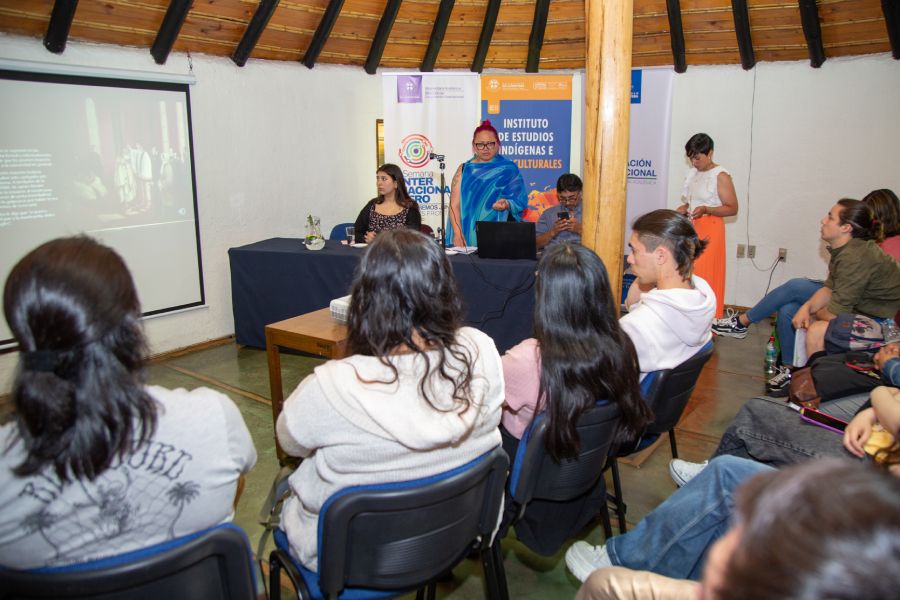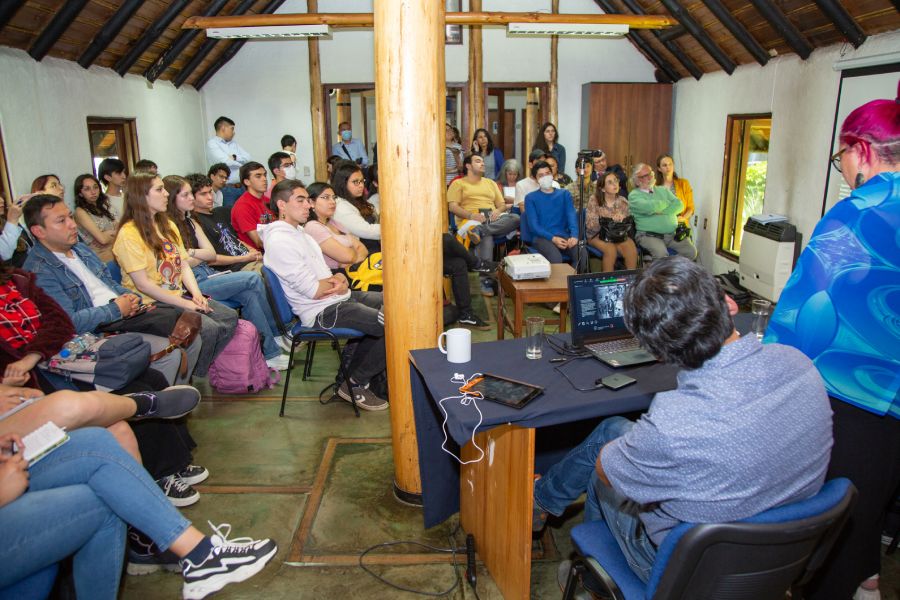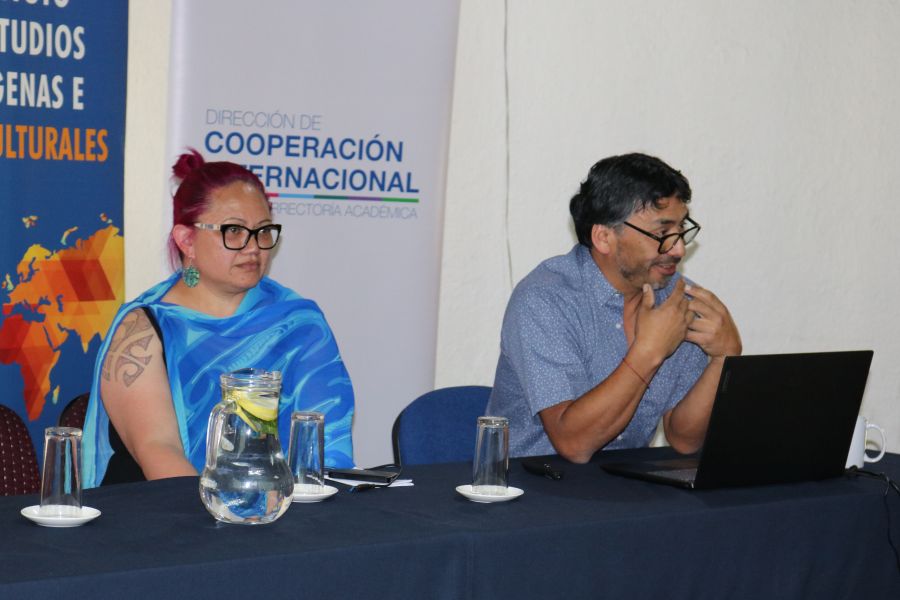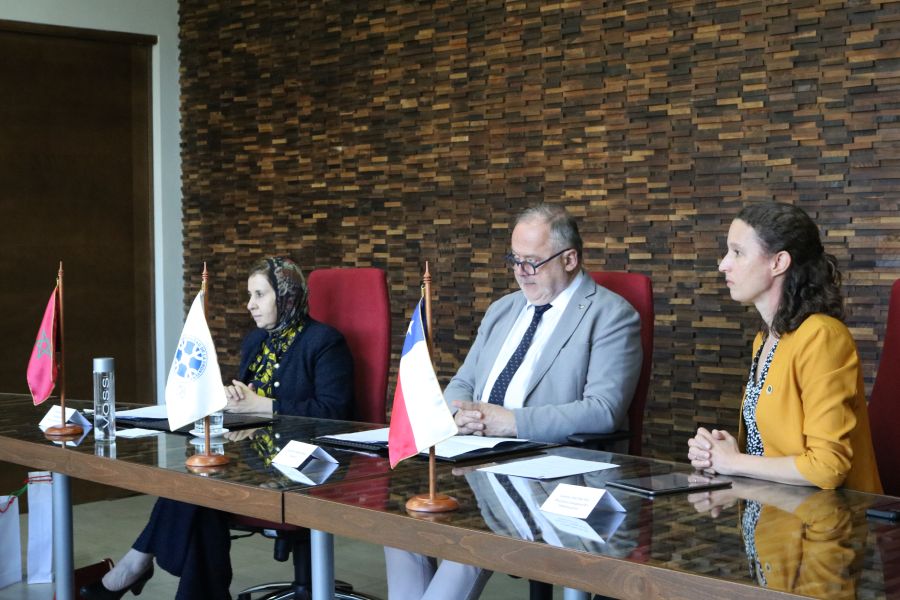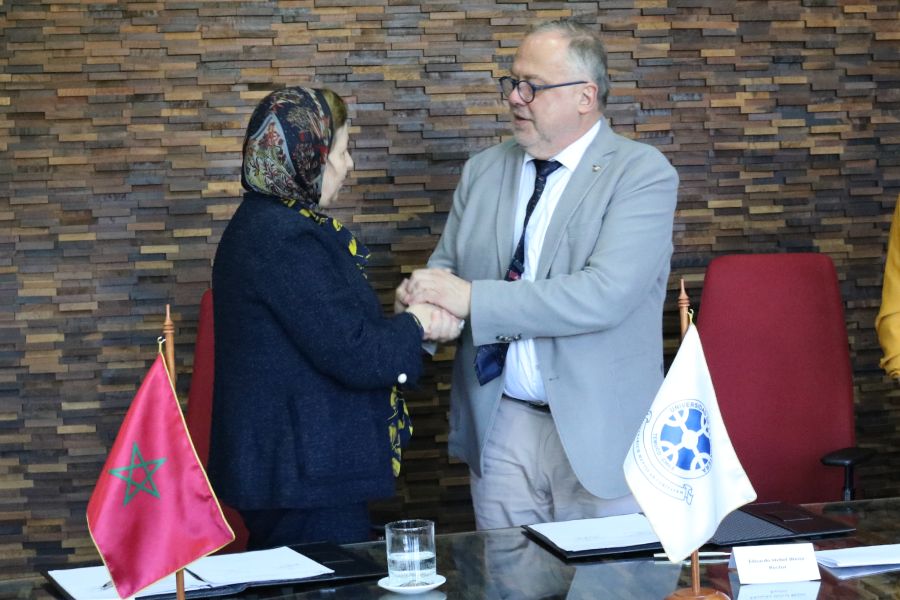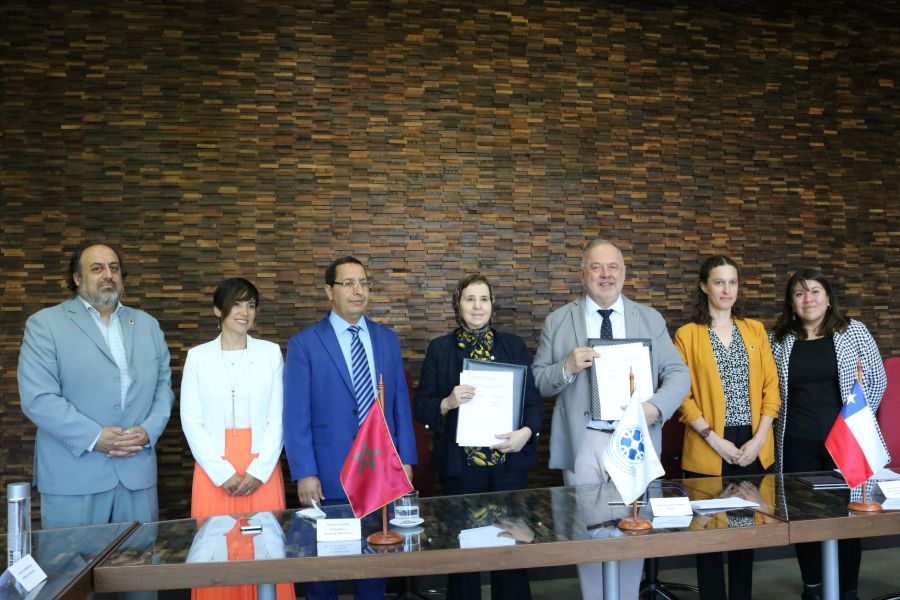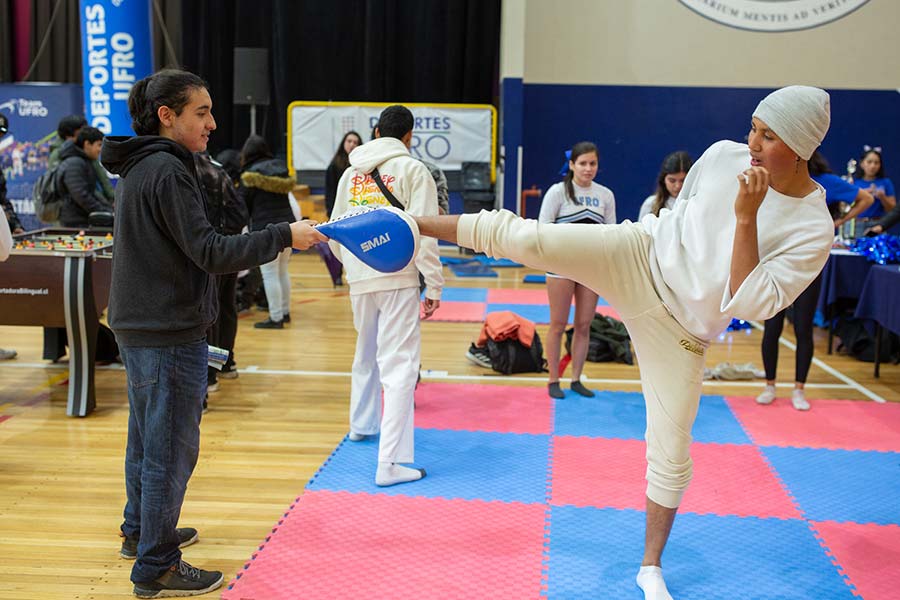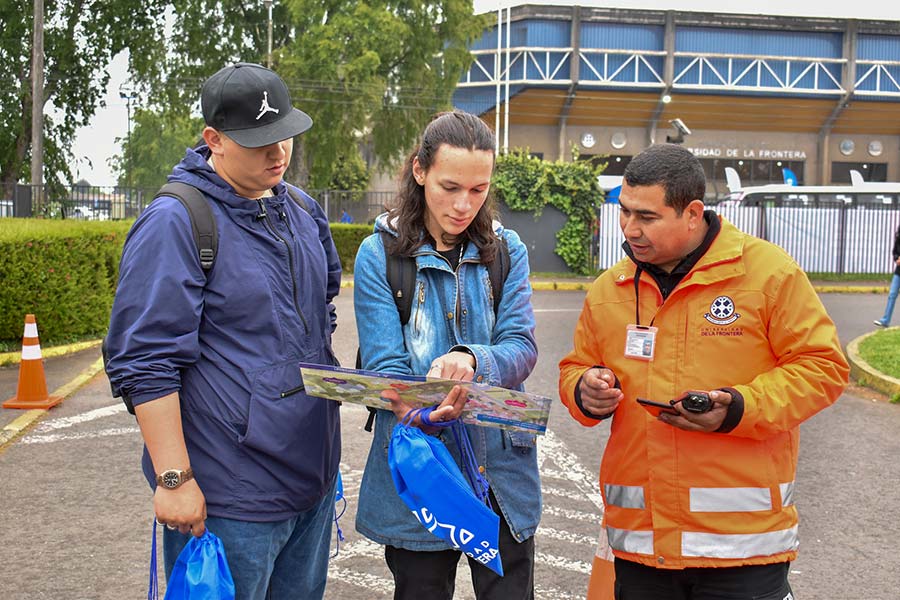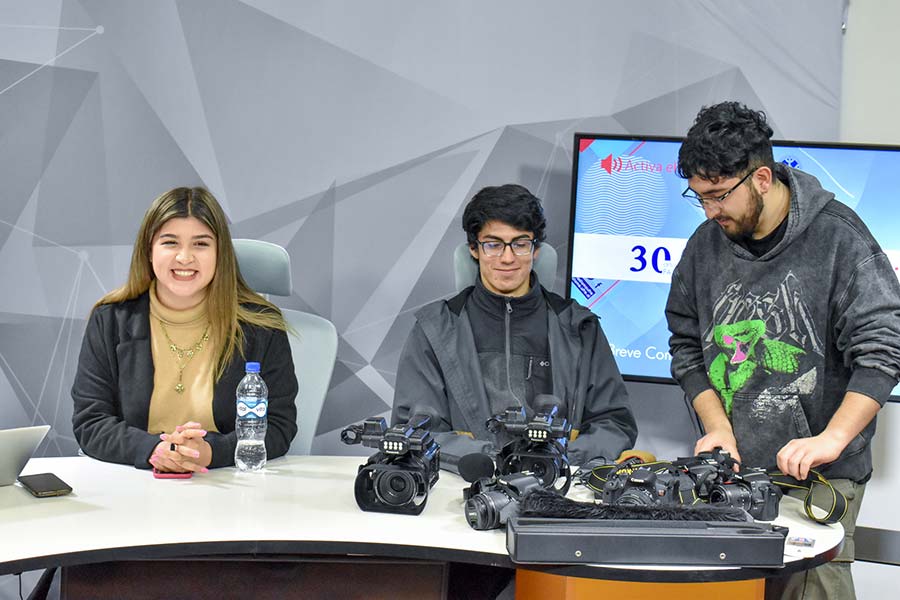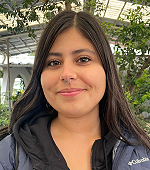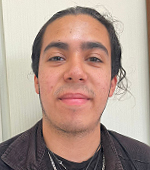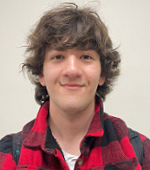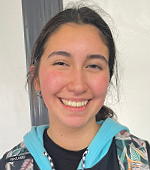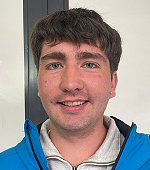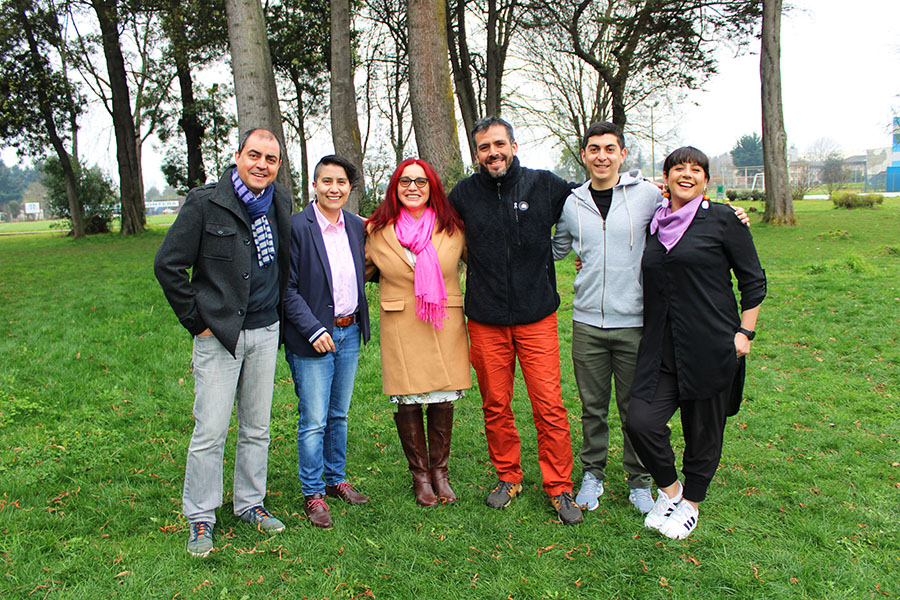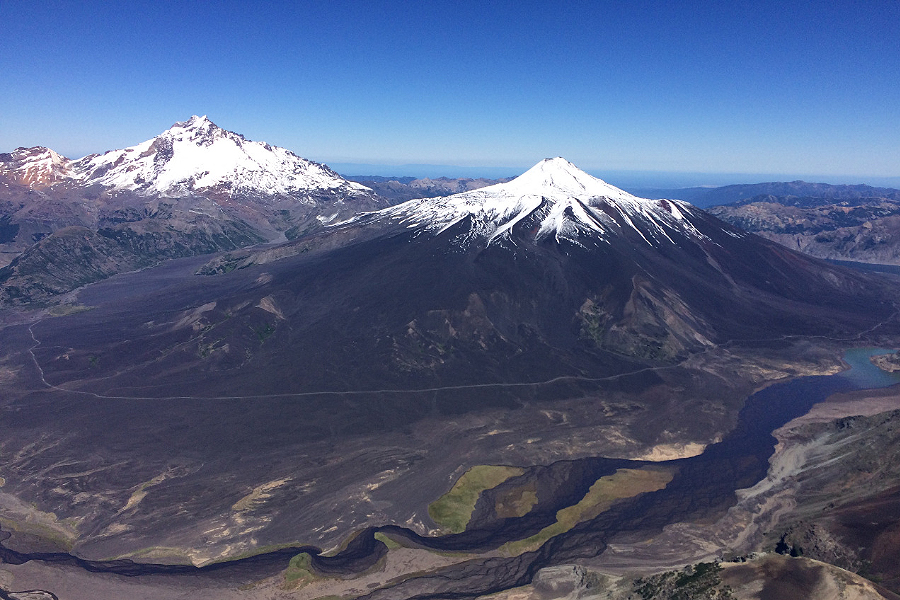|
The experts analysed different historical contexts and intercultural dynamics, from the revitalisation and recognition of the Māori language, to the historical, social and political development regarding the Mapuche People in Chile. |
Last week, the Universidad de La Frontera (UFRO) celebrated its International Week and one of the activities was a talk about ‘Interculturality: local and international experiences’ with the participation of Mihaere Emery from Te Wānanga o Aotearoa University in New Zealand and the academic Miguel Melín Pehuen of the Institute for Indigenous and Intercultural Studies (IEII) of UFRO in Chile. During the conversation, which was organised by the International Affairs Office and the Institute for Indigenous and Intercultural Studies at UFRO, the experts analysed the historical contexts and intercultural dynamics, from the Māori revitalisation and the recognition of their language, to the historical, social and political relations between the Chilean state and the Mapuche People. Dr. Guillermo Williamson Castro, an academic of the UFRO Department of Education, was in charge of the coordination of the activity. He commented: “Within the fields of Rural Education and Intercultural Education, we received the delegation from Te Wānanga o Aotearoa University in New Zealand, with the aim of establishing conversations between the different cultures around the world. Our idea is that the Mapuche People learn from the Māori People and vice versa.” “We are working on an agreement for next year that will allow student and academic exchange, as well as different collaborations in the fields of graduate studies, continuous education, research and publications,” Dr. Williamson added. THE SPEAKERS According to Mihaere Emery of Te Wānanga o Aotearoa University in New Zealand, the delegation is here to exchange knowledge. “It has been a very interesting experience, and we have been able to share our Māori culture and knowledge. It is very positive that this kind of initiative exists, since it is a starting point that allows a rapprochement of cultures.” Miguel Melín Pehuen pointed out: “The contextualization of the Chile-Mapuche relationship on the basis of the historic development and the occupation of the land is key to understand the interethnic and intercultural relations over time.” In this context, according to him, the visit of the Māori delegation was very important, since “we can learn a lot from them and their relation with the state. There is no other indigenous people that has international treaties, both with the Crown and the state, and they managed to promote their culture with this recognition.”
Written by: UFRO Communications Office
|
|
UFRO signs agreement with Embassy of Kingdom of Morocco and establishes its first alliance with the African continent |
The official signing of the agreement between UFRO and the Embassy of the Kingdom of Morocco took place in presence of the Ambassador of the Kingdom of Morocco, Kenzha El Ghali; the cultural attaché, Ahmed Ait Belaid; the Rector of Universidad de la Frontera (UFRO), Dr. Eduardo Hebel; the director of UFROs International Affairs Office, Dr. Lorena Vieli; and the director of UFROs Office of Libraries and Information Resources, Dr. Carlos Del Valle. The aim of the agreement signed at the meeting, where also Paulina Latorre, the coordinator of Internationalisation at UFRO, and María Paz Collío, who is in charge of International Agreements, were present, was to establish the general bases for academic, cultural and scientific cooperation, as well as the relationship regarding the fields teaching, research and dissemination of knowledge and culture. The Rector of UFRO, Dr. Eduardo Hebel, stressed that “this agreement formalises our first alliance on the African continent and will allow us to be ambassadors of the Moroccan culture in the south of Latin America”. Apart from the agreement, at the meeting they also addressed the exchange possibilities for academics, researchers and students through the implementation of projects of mutual interest. According to Kenzha El Ghali, the Ambassador of the Kingdom of Morocco, the relationship started six years ago. “This is not the first time that I visit this university, on the contrary; we see it as an embassy in the south of Chile that disseminates our culture and civilisation”, she pointed out. This agreement is the result of a great cooperation. “We are the first and only country in Africa that has an agreement with UFRO and we will continue to strengthen this relationship in order to meet our goals regarding student and academic exchange and to add internship opportunities in cooperation with Moroccan universities in the future”, the Ambassador added. SPECIFIC AGREEMENT Apart from the general agreement, another specific agreement was signed with the Doctorate in Communication of UFRO, which is led by Dr. Carlos Del Valle. This agreement formalises the creation of a ‘Moroccan Chair’, which will promote the study, knowledge and dialogue with the African country, as well as future projects and partnerships in other parts of the continent. In this context, Dr. Carlos del Valle commented that the first exchange of students took place in 2018, within the framework of a seminar with Chilean and Moroccan academics. “Within the Doctoral Program in Communication of UFRO, we saw the opportunity to start a chair that would work as an initiator of partnerships and possibilities in other fields and for other academic units of the university,” Dr. del Valle explained. Apart from that, another aim of this specific agreement is the collaboration and cooperation regarding publications, meetings, congresses and the exchange of literature, among others.
Written and translated by: UFRO Communications Office
|
|
High school students and high school graduates from over 85 schools visited UFRO last week during the Open House, where they had the chance to participate in more than 70 different activities to get to know the university, its campus, programs and all it has to offer. |
A miniature farm, an interactive presentation of the sports offer, live-music, guided tours, food trucks, interactive class simulations, and much more awaited the participants in the first version of the Open House at Universidad de La Frontera (UFRO). The event was organized by UFROrienta, within the framework of the admission process for 2023, which will start at the beginning of next year in Chile. About six thousand high school students and high school graduates from over 85 schools from the Araucanía Region, Bio Bío Region and Los Ríos Region participated in the activities, workshops and exhibitions UFRO offered that day. Early in the morning, the buses from different schools started to arrive at UFROs Aula Magna, where the students could register for the day and start to participate in the numerous activities that were easy to access, thanks to the maps, programs and schedules the students received. The Vice-rector for Undergraduate Affairs, Pamela Ibarra, explained: “This was the first mass event of this kind the university organized. Therefore, it was a great challenge for us to open our doors and to find an effective way to show the students in one day which options they have to study, but also that the university has a lot more to offer besides the professional training, as for example a large variety of sports or cultural activities.” Paula Hidalgo Sánchez, the Coordinator for Program Promotion and Dissemination was very happy about the high number of participants. “We received almost six thousand high school students and high school graduates from the Araucanía Region, Bio Bío Region and Los Ríos Region, who all enthusiastically participated in our numerous activities, such as workshops and talks with current students of our study programs. We were also able to show them our offer for their university life, with an interactive presentation of the different sports disciplines, cultural and artistic presentations, dance classes, guided tours, guided visits of our main library, and so on. That way, the students were able to find out which study program might be best for them and to visualize what it would be like to study at UFRO,” she explained.
IMPRESSIONS
Written and translated by: UFRO Communications Office
|
|
The objective of the Physical Literacy Research Centre is to study the variables that have an impact on the interest in practising physical activity throughout all stages of life. |
The Faculty of Education, Social Science and Humanities (FECSH) of the Universidad de La Frontera (UFRO) has a new Research Centre for Physical Literacy. The multidisciplinary team consists of academics from several national and international universities who have been working on different projects in this field of knowledge, but from different perspectives, which come together in this new Centre, in order to improve people’s quality of life from a holistic view. “The idea of creating our Physical Literacy Research Centre originated in the need to study the variables that are linked with the interest in practising physical activity permanently and throughout all stages of life. We want to approach the issue from a holistic point of view, where we consider not only the physical perspective, but also psychological, cognitive and social factors regarding the adherence to physical activity,” explained Dr. Jaime Carcamo Oyarzun, the director of the Physical Literacy Research Centre (CIAM). Taking into account that the concept of Physical Literacy is a globally emerging approach that has not yet been disseminated in the Spanish-speaking parts of the world, CIAM will be a pioneer in the study of this issue. In this context, Dr. Carcamo explains: “We hope that the knowledge we generate will position our Faculty and our University as a national and international reference in this field. It is worth mentioning that the members of the research team of CIAM already develop their lines of research at a high level, for example within their Diufro, Fondecyt, or INES projects, among others. That is why we will always try to make sure that our research at CIAM has a high impact.” CIAM OUTREACH AND COMMUNITY ENGAGEMENT The objective of CIAM is not only to study the dimensions related to Physical Literacy, but also to ensure that the findings from the research will have a direct impact on the population. Once CIAM gathers the data and establishes an approach regarding the regional and national context, the team of researchers will develop interventions adapted to the local social reality, in order to create a positive impact on the development of Physical Literacy. In this context, Dr. Carcamo pointed out: “We will provide trainings for teachers and other actors related to this field, in order to update the teaching practices and to give them the tools to adapt and further develop their teaching skills within our context, for the development of Physical Literacy.” FUTURE CIAM-UFRO PROJECTS The first objective is to position the Physical Literacy approach in the national and international context. Therefore, the researchers will carry out a systematic review of the existing literature, which will be a starting point for the development of the first CIAM-UFRO project. The initial aim is to establish a national consensus on the concept and structure of Physical Literacy, since one of the important aspects for the development of this field is that everybody agrees on the fundamental aspects, addressing the topic from the local realities. “On November 17, we will carry out a seminar about the current situation and future perspectives of physical education, with a main focus on the development of Physical Literacy. The participants and speakers of this seminar come from different parts of Chile, Spain and Switzerland. They are all working on development proposals in this field, and will participate in scientific meetings for each of the lines addressed by the centre,” the director of CIAM explained.
Written by: Claudia Palacios Arriagada, |
|
The project led by Dr. Millaray Curilem will allow identifying changes in the activity of a volcano based on the temporal analysis of its seismic behavior and the localization of the seismic source. |
Chile currently has 92 active volcanoes and about 16% of the national territory is under the direct influence of these mountain massifs that in our country’s history have shown their capability to cause major disasters that can happen at any time. According to experts, major eruptions occur each eight to ten years. Based on that, a group of scientists of the Universidad de La Frontera (UFRO) carried out a study with the objective of supporting the monitoring of the present volcanoes across the country and especially in the La Araucanía Region, where the volcanoes Llaima and Villarrica are located. The project ‘System for the evaluation of the activity of a volcano through automatic analyses of the behavior of its seismic signals and the generation of alerts in the event of conditional changes’ was financed by the Chilean Fund for the Support of Scientific and Technological Development (FONDEF) of the Chilean National Agency for Research and Development (ANID). The person in charge of the project was Dr. Millaray Curilem Saldías, who holds a Ph.D. in Electrical Engineering, with specialization in Information Systems, of the Federal University of Santa Catarina in Brazil. She was also the one who led the closing ceremony of the project, with the presence of academic authorities and representatives of the National Geology and Mining Service of Chile (Sernageomin). It was the third project in this field that the group led. In this context, Dr. Curilem explained: “We are very fortunate that the Southern Andes Volcano Observatory is located here in the city of Temuco, since it offers an enormous amount of data, which we are able to process thanks to the tools we have.” The researchers´ work, in which also a group of UFRO undergraduate and graduate students participated, seeks to find an IT tool to identify changes of the activity of a volcano based on the temporal analysis of its seismic behavior and the localization of the seismic source. “The analysts of Sernageomin have to analyze about four thousand hours of data. That is a lot of time and the system we are developing supports this analysis. The idea is not to replace the analysts, but to simplify the data processing. Especially when it comes to the alerts that need to be placed regarding certain events, the system becomes a significant support for the analysts,” Dr. Millaray Curilem added. Regarding the possibility of developing a monitoring system to predict the occurrence of volcanic eruptions, Dr. Curilem explained that, depending on certain requirements, it could be possible. “The key is to detect any major changes in the seismic activity or any other variable of the volcano in time, because the earlier I am able to detect it, the faster I can predict an eruption and issue the warning. The problem is that, for example the Calbuco volcano did not present any changes from the seismic point of view until shortly before the eruption. It was not early enough to be able to issue an early warning,” she pointed out. UFRO RESEARCH With regard to the completion of this Project, Franklin Valdebenito, the director of the Office of Innovation and Technology Transfer of UFRO, congratulated the research team, led by Dr. Millaray Curilem, for their work. “This line of research and this project achieved to create a technology that was intellectually protected and we hope soon to be able to transfer it to Sernageomin and the Southern Andes Volcano Observatory (OVDAS). With that step, we would complete the cycle we want for our projects, in which we achieve development but also a transfer for the benefit of our community,” he said. Dr. Jorge Farías Avendaño, the dean of the Faculty of Engineering and Science, commented: “This project contributes to the region´s development and knowledge within the volcanic area. With our experience as a university and faculty, we will be able to support the monitoring of volcanoes, using state-of-the-art technology, as for example AI or data analyses that respond to the needs that arise from the inhabitants themselves.”
Written by: José Sanhueza |





